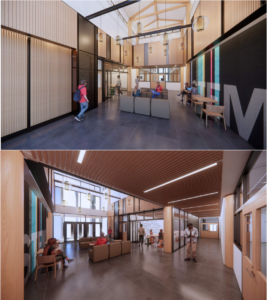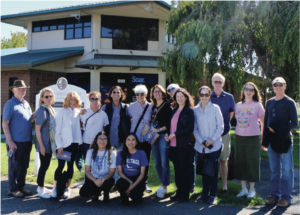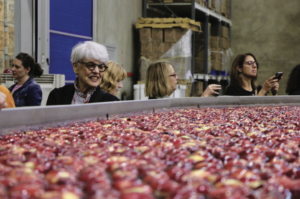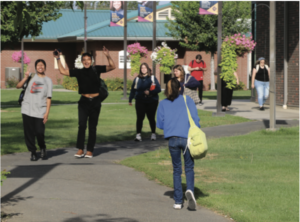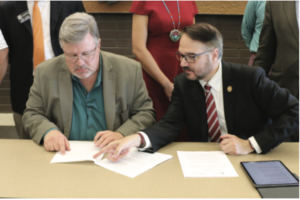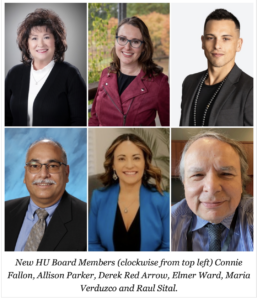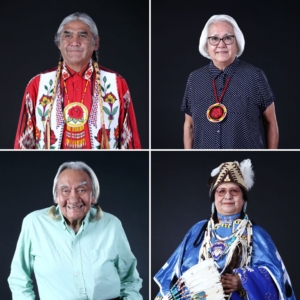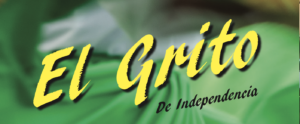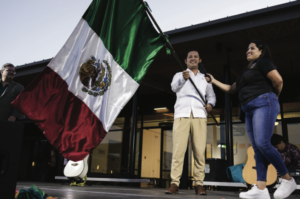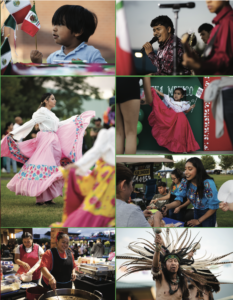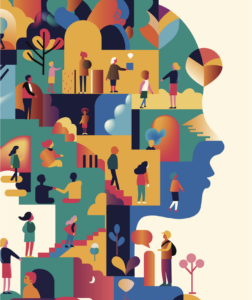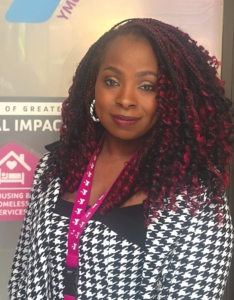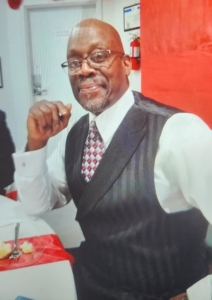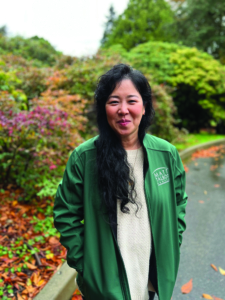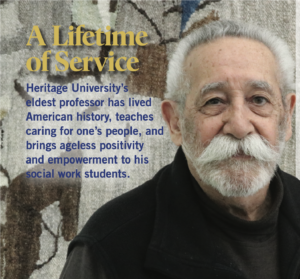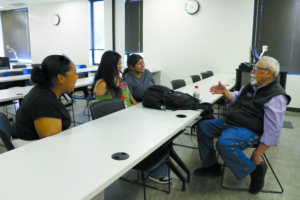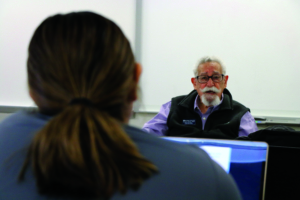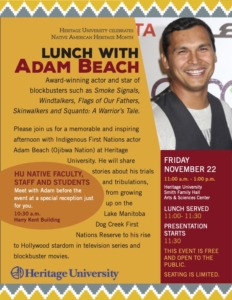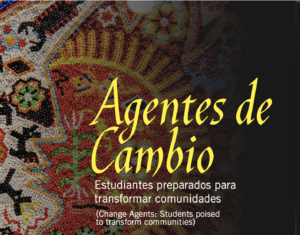
When Heritage opened its doors a little over 40 years ago, the diversity of the professional community in the Yakima Valley didn’t reflect the communities they served. In communities where most of the population was culturally Hispanic, Latinx, or Mexican, few teachers, social workers, business leaders, and other professionals shared that culture. With more than 11,000 graduates, we are seeing some demographic changes. But there is still a lot of work to be done.
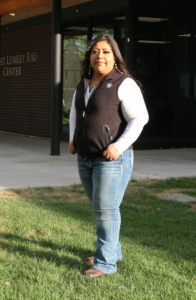
Judi Montes
Today’s Heritage University student is tomorrow’s community leader. They are the change-makers. Here are a few of their stories.
Sophomore and criminal justice major Judi Montes is not just preparing to be a community leader; she is one already. As a dedicated volunteer and organizer in her hometown of Granger, Washington, Montes is actively involved in the Chamber of Commerce and Granger Lions Club. She has helped organize and volunteered at initiatives such as the local schools’ PTO, holiday parades, and the annual Cherry Festival. After raising three daughters, she is pursuing her dream of earning a college degree to further contribute to her beloved community.
Granger is a small agricultural town with a population of under 4,000, predominantly Hispanic. In this tight-knit community, residents rely on each other to solve problems and support one another. Montes’s journey from a single mom to a community organizer reflects this spirit.
“Everything started with my daughters,” Montes explains. “As a single mom, I was determined to help my daughters succeed. I volunteered for their schools and enrolled them in sports, always helping with whatever activities they were involved in.”
Her commitment to her children led her to the Inspire Development Center, where she became one of the most active volunteers. Her involvement was so significant that she was invited to Washington, D.C., to discuss the importance of early learning programs for migrant families with legislators. “It was fascinating to see the national efforts to secure funding for these centers,” she recalls.
As her engagement deepened, Montes recognized that her community faced challenges beyond those she encountered through her children’s activities. After starting a full-time job at Inspire, her activism intensified. She interacted with many families and began understanding her community’s broader issues, including immigration problems and neighborhood safety concerns.
“People often come to me and share the challenges they’re facing, whether it’s struggling with immigration, accidents, or issues they notice in the community. I’m always here to listen and truly value when others feel comfortable approaching me with their concerns or suggestions. It’s important to me that they know their voices are heard, and together, we can work towards finding solutions,” Montes said.
In 2023, she was asked to run for a position on the Granger City Council. “Things in our community were not going well, and it was time for a change. Parents work late, and there’s little for children to do—no pool, no youth center, and gang activity is increasing. We need action,” she said. Montes ran for office and won with 63% of the votes.
Starting her council position coincided with her second semester at Heritage. “I’ve always wanted to be a lawyer. The law is power, and it will enable me to do more for my community,” she explains. “Getting my degree and becoming a lawyer will help me build my network and make a difference.”
Montes emphasizes the importance of community collaboration: “We are here to help others. Getting things done isn’t just about money; it requires people—those who can initiate and sustain change. I want to be that person.”
Yadira Cuellar is passionate about her Mexican heritage and committed to helping young people overcome mental health challenges. Currently a student in the Master of Mental Health Counseling program, she aims to dismantle the barriers that hinder individuals from living fulfilling lives.
“In my community, there are many stigmas and misconceptions surrounding mental health,” Cuellar said. “The Mexican culture often views mental illness as a sign of weakness, but that’s not true. The brain is an organ; like any other, it needs treatment when it’s unwell.”
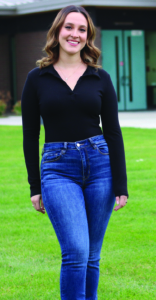
Yadira Cuellar
After graduating, Cuellar returned to the Yakima Valley, where she became a case manager for young people involved in the foster care system, juvenile justice centers, or transitioning out of drug rehabilitation. “Many of these young individuals have endured traumatic experiences. They often struggle with behavioral disorders, come from broken homes, and find it difficult to move past their trauma,” she said.
As a case manager, Cuellar plays a vital role in the therapeutic team, connecting participants with essential services such as drug treatment, housing assistance, and mental health support. While she enjoys her current role, she aspires to have a more personal impact on young people’s lives. Earning her master’s degree will enable her to provide one-on-one counseling, allowing her to address the underlying mental health issues that hinder individuals from living independently and productively.
There is a pressing need for mental health providers from diverse backgrounds who can relate to the demographics of their communities. In Yakima County, which is 51% Hispanic, there is a significant shortage of Latinx behavioral health clinicians. “When someone Mexican walks through the door and sees that I am also Mexican, there’s a level of trust,” Cuellar said. “That shared background and understanding of similar beliefs, values, and traditions help foster a relationship of trust.”
Currently, in her first semester of the master’s program, Cuellar balances her studies with her work as a case manager. She expects to graduate in May 2026 and plans to continue her career in the Yakima Valley as a therapist for young adults.
Cuellar’s journey is a testament to her dedication to breaking down cultural barriers in mental health care, ensuring that future generations have the support they need to thrive. Through her work, she honors her heritage and paves the way for a healthier, more understanding community.
Being a Mexican means breaking a lot of things. Breaking cycles, breaking down obstacles, breaking through prejudice and out of limited expectations.
For a man in his early twenties, Salvador Ayala Vaca has wisdom beyond his years. It was learned through triumphs and tragedies, lots of hard work, and sage advice from his late father. Ayala was just a few months from graduating from high school when his dad passed away.
“My dad used to tell me, ‘We’re not rich. But you have something in your hands, an American citizenship, that will open many doors. Use it, and you’re going to see lots of good things.’”
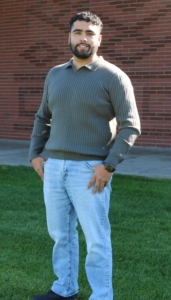
Salvador Ayala
Now a senior majoring in computer science, his academic résumé rivals any Ivy League school student. He has completed eight research experiences, including stints with Amazon, the Department of Energy in Washington, D.C., and collaborations with leading agricultural companies. He’s mentored students in the College Assistance Migrant Program and the CRESCENT program and is a tutor in the Academic Skills Center.
Ayala was sixteen when he and his family immigrated to the United States from Mexico. They were a hardworking family. In Mexico, Mom, Dad and the two brothers worked in the fields, often more than 13 hours a day, every day. Coming to America meant Ayala and his brother would have a better chance at a better future.
“When we came to America, we weren’t scared,” said Ayala. “We knew how to work hard. We knew that, in America, we could find jobs that pay better, and my brother and I could get a better education.”
The challenges he and his family faced when they moved to the United States—racism, difficult manual labor, low expectations of others, learning a new language, and finding his place in a new country—motivated him to excel in education.
“I want to inspire others who immigrate to this country. They can accomplish their goals. They can get an education. If you have the passion and the motivation, nothing can stop you.
“I see the sacrifices of my people every time I drive to Heritage. I see them in the fields picking apples, pears, and hops. It’s an honor to be Latino. My people are the ones who bring food to the table; without us, this country would be very different.
“I also know that this work is hard and dangerous. People are out there working in 100-degree-plus temperatures. We can do things through technology to make their jobs better and safer. I want to be part of the work that creates technology to improve their working conditions. With a degree in computer science, I can help companies collect and analyze data to improve their processes.”
Ayala is set to graduate this spring. He plans to enter the workforce and return to school after a few years to earn a master’s degree.
Being the oldest child in a traditional Mexican family comes with a lot of responsibility, especially when you are the oldest daughter. For junior and education major Jackie Martinez, being the oldest is a position of honor and one that prepared her for her future career as a teacher.
“I’m glad I have the privilege of being the oldest. It is definitely not a burden,” she said. “I developed a caring, nurturing personality because I grew up caring for my younger siblings. I feel like that will help me when I have my classroom one day.”
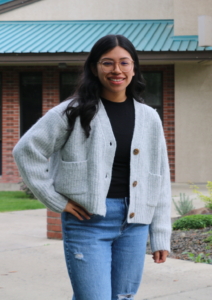
Jackie Martinez
Martinez knew very early on that she wanted to be a teacher. When she was in the fifth grade, a little boy, Eduardo, started school in the middle of the year. He had moved with his family from Mexico, and he didn’t speak a word of English. Her teacher didn’t speak Spanish. She asked Martinez if she could sit with Edwardo and help him with his lessons.
“It felt good helping out and seeing Edwardo start to grasp what we were studying and start to fall in love with learning,” she said. “Through him, I could imagine what it must be like to go someplace new where you didn’t know the language and then find that one person who guides you and helps you feel comfortable and safe. I knew then that I wanted to be that person.”
While her teachers were a big influence on Martinez throughout her K-12 years, it was the ones who shared her Mexican heritage that really inspired her to do well in her studies and strive for a college degree after graduating.
“Sunnyside is a Hispanic community. When I was in school, the only people I saw who looked like me and shared my cultural heritage worked in the fields. There weren’t a lot of Hispanic teachers in my school.
“I was in the eighth grade when I had my first Hispanic teacher. She was my hero. She looked like me. She knew my culture and what it was like to have parents working in the fields. I could relate to her.
“That kind of connection is important,” said Martinez. “It helps children feel safe in their classroom and more open to learning when they feel like the teacher can relate to what is going on in their world. Plus, it helps them see themselves in roles outside of farmwork. I want to be that person for my students.”
When Martinez graduates, she wants to return to the school system that raised her and teach the children in Sunnyside.
“There is a lot of work to be done in my community if we want to break the cycle that keeps our kids from prioritizing education,” she said.
Heritage senior and business major Christian Verduzco wasn’t out of elementary school when he started his first business. The tiny tot entrepreneur wanted to earn a little extra money, so he sold his shoes. In a few months, if all goes to plan, those won’t be the last pair of shoes he’ll sell. Verduzco dreams of leveraging his business and marketing degree enter the big business of sportswear. And, he has a hook, his culture.
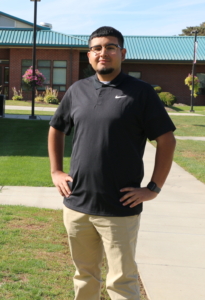
Christian Verduzco
“Hispanic employees bring a lot of benefits to their employers,” said Verduzco. “We have great empathy, a strong work ethic, dedication, discipline and loyalty.”
Not to mention, he said, with Hispanic households being one of the fastest growing demographics both in their numbers and their purchasing power, bringing employees with this cultural background into management positions in companies large and small makes good business sense.
“Having focus groups can only get you so far,” he said. “Nothing beats having someone of the culture to market to the culture. There are so many nuances to being Hispanic that people get wrong. Just look at how we see Mexican, Hispanic and Latino used like they represent the same group of people. They don’t. When businesses make assumptions and get them wrong, it’s obvious and can negatively impact their bottom line.”
For Verduzco, business success is as much about personal accomplishment as it is about being a role model for young people growing up like he did—the children of hardworking immigrants who sacrificed education for survival.
“There were not a lot of role models for me in Sunnyside,” he said. “There was a lot of violence and expectations that I would just go into the workforce after high school. I was lucky that my parents always pushed me to get an education. My mom would say, ‘You’re really smart, son. I want you to do something more than I got to do.’”
With graduation half a year away, Verduzco is starting his job search. Where he will end up remains to be seen, but what he will accomplish and the significance of that accomplishment to his family and community is indisputable.
“Me and two of my siblings are the first in my family to earn a degree,” he said. “The first to have a wide path of opportunities ahead of us.
“A message I have for future students is to believe in yourself, trust in God, fight for your dreams. You may not have it all figured out but keep working, have that faith that it will all come together. ¡Si se puede raza!” 
